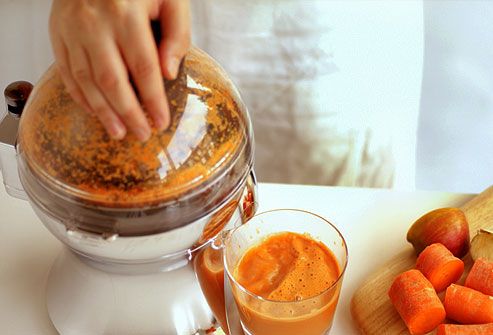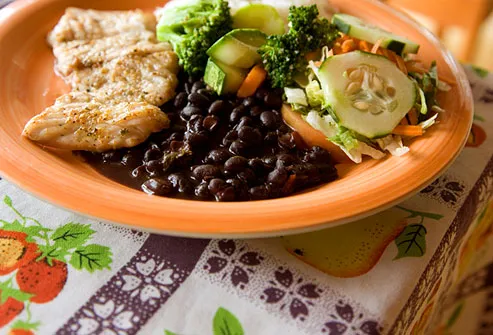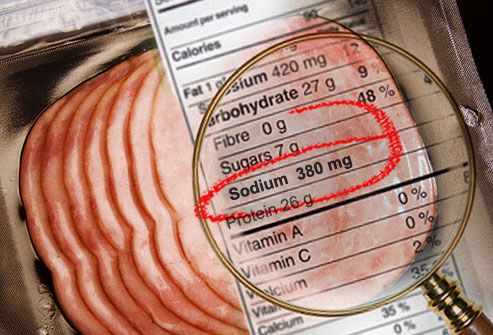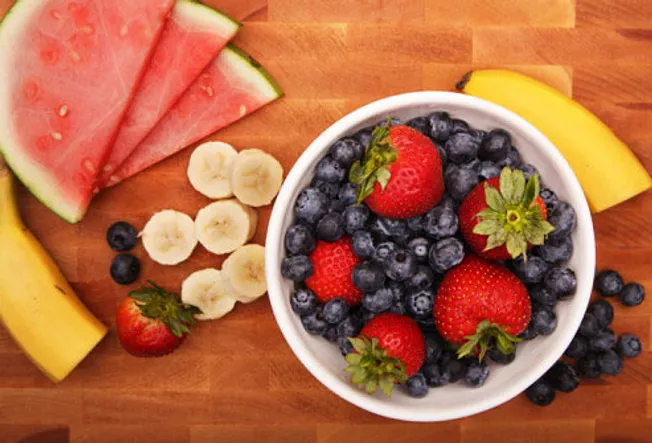Problem Foods to Avoid as You Age

1
/
11
Grapefruit
It may be surprising, but foods can affect how your medicine works. That’s why it's always best to ask your doctor or pharmacist if you should avoid any foods. For example, if you take medicine for high blood pressure, anxiety, or insomnia, grapefruit juice may interact with your drugs. Don't miss out on the vitamin C and potassium that grapefruit holds. Instead, enjoy other citrus fruits like oranges and limes. But check the labels of other juices before you drink them. Some may contain grapefruit juice.
Swipe to advance

2
/
11
Raw Vegetables
If you have sensitive, decayed, or missing teeth, raw vegetables may be high on your list of foods to avoid. But don't miss out on the vitamins and fiber. Instead, try cooking vegetables until they are softer. Or use pureed vegetables -- such as carrots, pumpkins, and beets -- in soups or stews. You can also try canned vegetables. Just look for those with no added salt.
Swipe to advance

3
/
11
Beans
Some people avoid beans because of the gas and stomach pain they can cause. But if you've banned beans from your diet, you may want to reconsider. An excellent source of fiber, beans are also high in protein and iron and low in fat. The trick is to add beans to your diet slowly. Start by having a small serving a few times a week. Or try using a digestive enzyme that's sold over the counter to reduce gas.
Swipe to advance

4
/
11
Alcohol
Moderate drinking may reduce your risk of heart attack and some types of strokes. But as you age, alcohol may affect you differently, even if you're used to a glass of wine with dinner or a beer with TV. Alcohol disrupts sleep and can raise your blood pressure, too. Alcohol can also cause hypoglycemia in people with diabetes. It even affects the way medicines work. Talk to your doctor about your alcohol use.
Swipe to advance

5
/
11
Dairy
You may have trouble digesting milk or dairy products as you age. But you may not have to give up all dairy products and the calcium and protein they provide. Many people can have small amounts of dairy with no stomach upset. And some dairy products are better tolerated than others. Non-fat plain yogurt and low-fat cheeses are especially nutritious choices. Or try lactose-free dairy products.
Swipe to advance

6
/
11
Caffeine
Although caffeine may not be a problem for everyone, it can make some people feel anxious or jittery. Caffeine can also increase your heart rate and cause sleeping problems. If you're trying to cut back, be sure to taper off slowly. Stopping caffeine too quickly may cause headaches, nausea, or vomiting. Slowly replace caffeinated drinks with water, herbal tea, or decaf.
Swipe to advance

7
/
11
Meats
Some of the healthiest cuts of meat, such as lean steak, can be the most difficult to chew. While hamburger is much easier on the teeth, it's often a less nutritious choice. It can contain 20% to 30% fat. Instead, look for lean ground beef with no more than 10% fat. Or for a healthier protein source that's easy to chew, try fish.
Swipe to advance

8
/
11
High-Salt Foods
If you're 51 or over or in a high-risk group, the CDC recommends you watch how much sodium you get, If you're over 51, the recommended limit is 2,300 mg her day. And if you're in a high risk group make sure you get no more than 1,500 mg of sodium each day. Too much sodium can raise your blood pressure and put you at higher risk for heart attack and stroke. The main culprits? Processed foods, such as frozen foods, snack foods, salad dressings, and lunch meats. Read labels carefully and look for "sodium free," low-salt, or no-salt alternatives.
Swipe to advance

9
/
11
Cruciferous Vegetables
Do you avoid cruciferous vegetables because of problems with gas? Cruciferous vegetables -- broccoli, cabbage, cauliflower, and kale, for example -- are high in vitamin C, beta-carotene, fiber, calcium, iron, and folate. Some studies have shown they may also reduce your cancer risk. Don't avoid these vegetables. Just add them to meals gradually, in smaller servings. Drinking plenty of fluids may help too.
Swipe to advance

10
/
11
Fruit
Fresh fruits contain an abundance of vitamins, fiber, and other important nutrients. But it may be hard to eat your "apple a day" if you have trouble chewing. Instead, try canned fruits with no added sugar or syrup, or eat softer fruits, such as berries, bananas, and melons. You can also blend your favorites into a fruit smoothie.
Swipe to advance

11
/
11
Raw Sprouts
Clover, alfalfa, radish, and mung bean sprouts are high in B vitamins and other nutrients. But raw sprouts can also pose a health threat to seniors and anyone with a weakened immune system. Because they are grown in warm, humid conditions, sprouts are more likely to harbor bacteria than other fresh produce. To enjoy sprouts safely, cook them thoroughly before eating.
Swipe to advance
- Get link
- X
- Other Apps